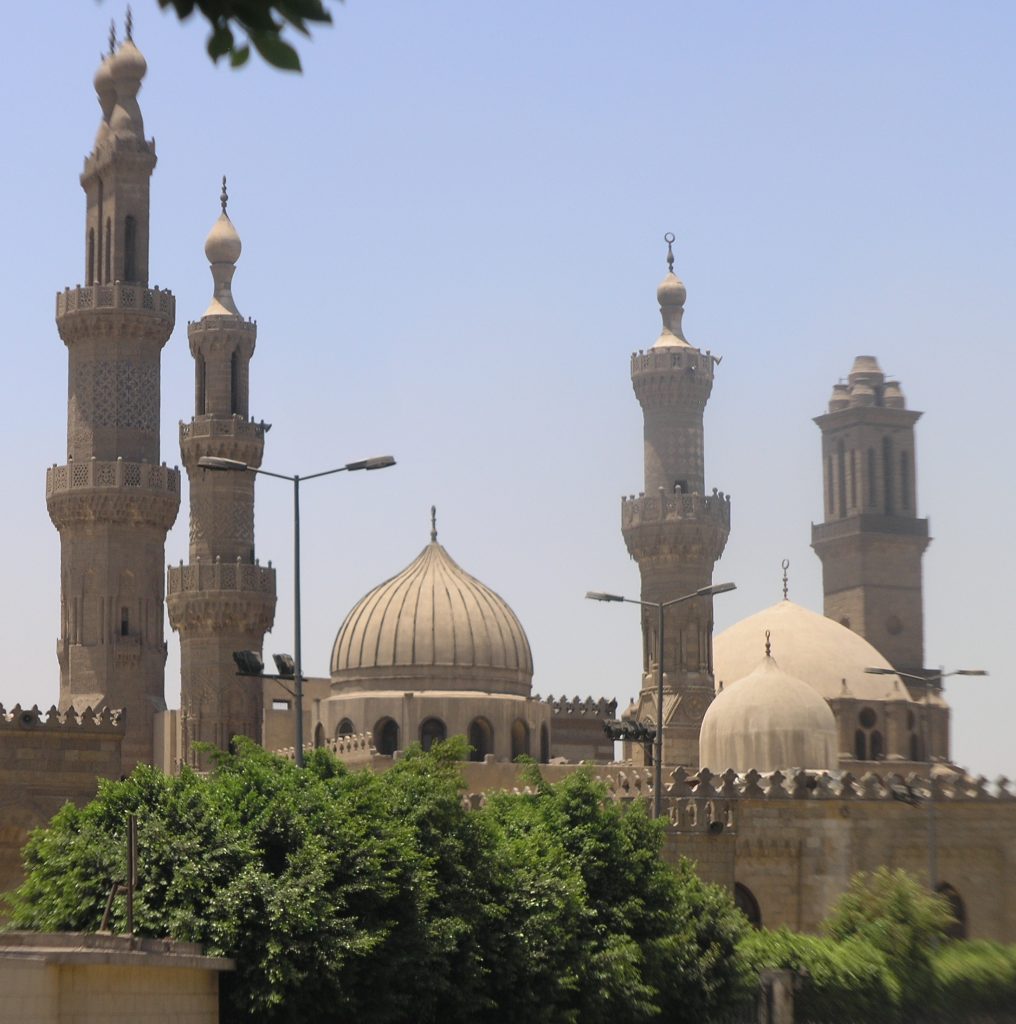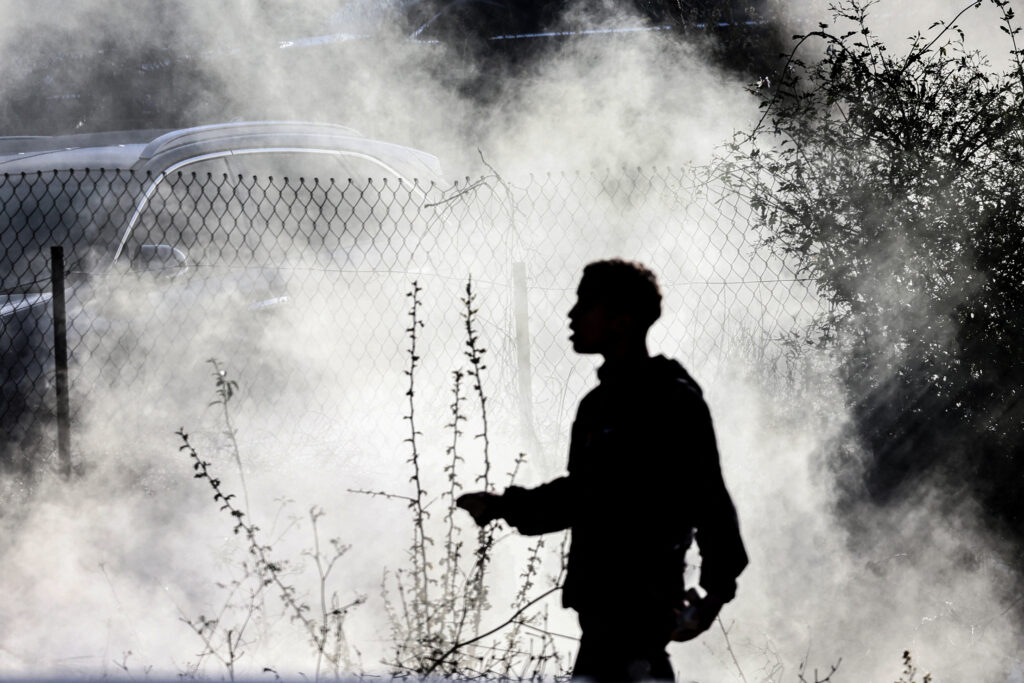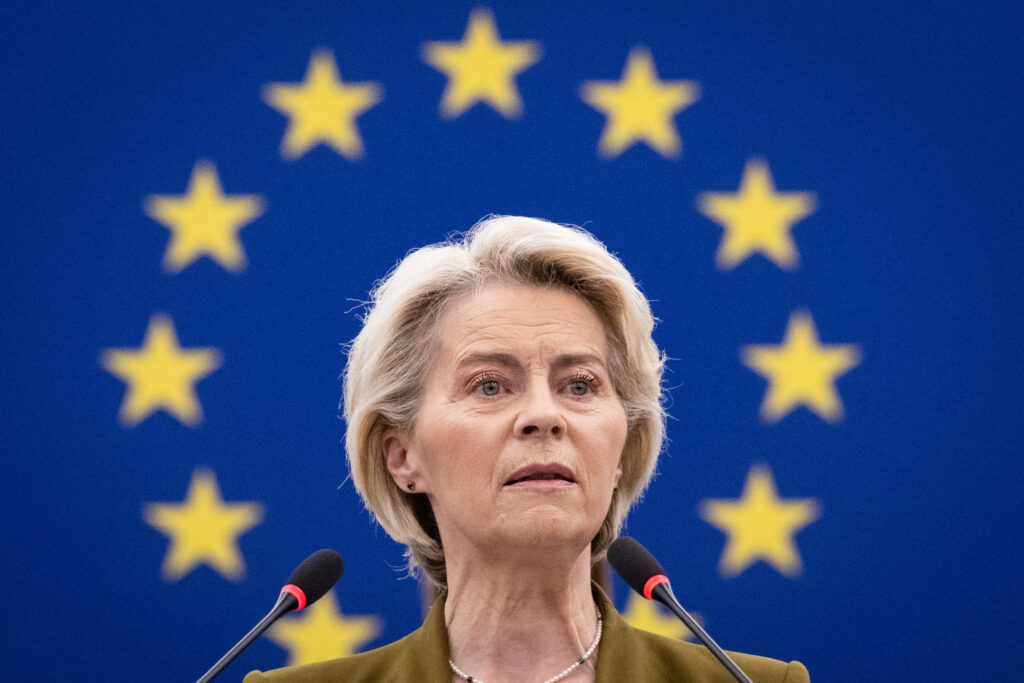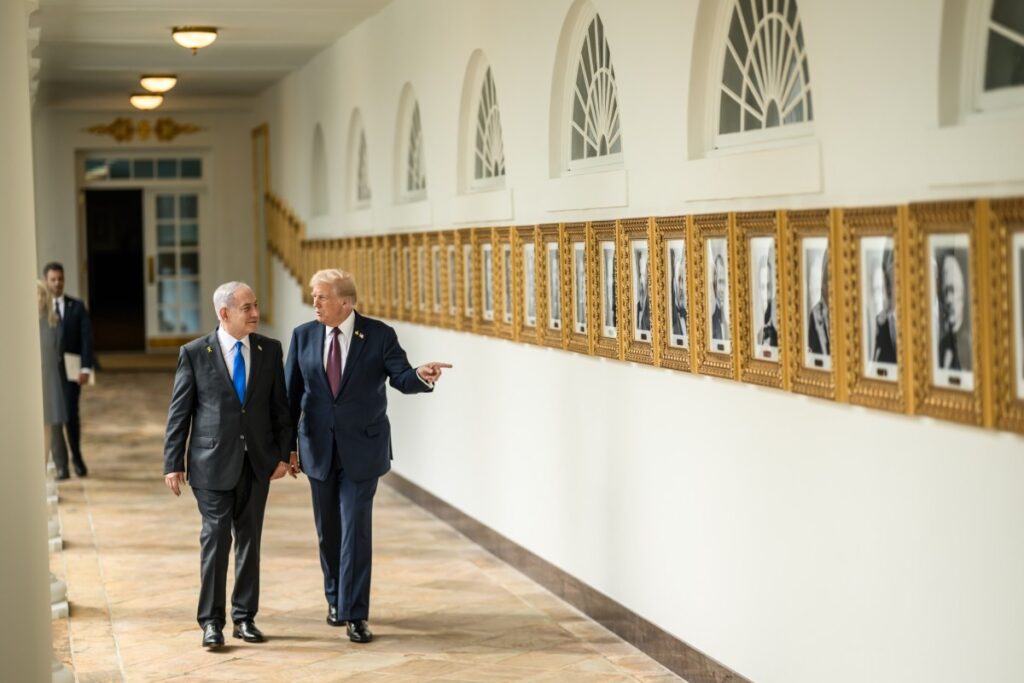By Zoltan Pall
The 2010-2011 Arab Uprisings have profoundly affected Salafism in Kuwait. The series of political crises and restructuring of the political landscape in the country led to ideological debates and fragmentation within the movement. In this paper I provide an overview and analysis of the fragmentation of the most influential Salafi network in Kuwait developed under the aegis of one of the biggest transnational Islamic charities, the Revival of Islamic Heritage Society (RIHS) after the Arab Awakening.[1] I also discuss how this fragmentation contributed to the restructuring of the whole Salafi scene in the country.
Salafism in Kuwait emerged as a proselytization movement in the late 1970s mainly as the result of the activism of a handful of influential preachers, such as the Egyptian ‘Abd al-Rahman ‘Abd al-Khaliq.[2] Unlike the majority of Salafis in the Middle East at that time, the Kuwaitis were not limiting their focus on giving religious lessons in the mosques about performing rituals in the correct way, but were engaging in public debates and significant charity activity.[3] In 1981 Kuwaiti Salafis became the first among Salafis in the world who stood as candidates for the parliamentary elections. Since then the movement in Kuwait has been represented by considerably strong factions in the 50 members legislative body.[4]
Since the 1980s Kuwaiti Salafism went through a series of schisms along the lines of the fragmentation of the movement on a global level.[5] By the second half of the 1990s two separate factions emerged, both with profoundly distinct discourses. While they agreed on the literal interpretation of the Qur’an and the Sunna (Prophetic Tradition) and the necessity to purify Islam from what they see as corruption of the pristine form of religion, they disagreed on the question of the relationship of the ruler to his subjects. The first faction, whom I call purist gathered under the auspices of RIHS, and its de facto political wing, the Salafi Islamic Gathering (SIG). Purists believe in the obligation of the unconditional obedience to the Muslim ruler, and the prohibition of political demonstrations. While they participate in parliamentary politics, they do so to support the Emir against his opposition, as they claim. The activist Salafis, or harakis, unlike the purists believe in the permissibility to publicly criticize, hold accountable or as a last resort overthrow the ruler.[6] They were represented by two organizations, the Salafi Movement and the Umma Party.[7]
Post-Arab Uprisings fragmentation
Despite the fact that the Kuwaiti monarchy survived the Arab Uprisings, it was by no means unaffected. In the summer of 2011 a massive opposition movement emerged, accusing the government of corruption and chronic inefficiency.[8] A series of demonstrations, launched by this opposition led to the resignation of the Prime Minister Nasir bin Muhammad in November.[9] Since then crises after crises characterized Kuwaiti political life.[10] In the past four years the necessity to reform the political system, and the question of whether the head of the government should be appointed by the Emir or elected by the people, has been in the center of public debates.
The context of the Arab Uprisings resulted in significant changes within the purist faction. Salafi leaders who were associated to RIHS appeared in the demonstrations in 2011 demanding political reforms. A number of purist scholars (‘ulama’), who initially opposed the revolutions in the region, revised their stance after the brutal crackdowns on protesters in Libya and Syria. They called for the revision of the purist doctrine about the obligation to obey the ruler, and started to emphasize the necessity of reforms in Kuwait itself. These scholars today constitute a faction within RIHS, which I call ‘reformist’.
Probably the most notable member of the ‘reformists’ is Shaykh Nazim al-Misbah, the head of RIHS’s fatwa issuing council.[11] At one of his public talks he praised European political systems where the rulers can be changed every four years. He emphasized that this is in accord with the shari’a. He also praised the Kuwaiti opposition because they demand change in a ‘civilized’ way by launching demonstrations and not using violence.[12] Shaykh Nazim argued that the necessity of unconditional obedience to the ruler is only valid, if the governance of the latter does not contradict gravely with the interest of Muslims.[13] This stance contradicts the traditional purist views, which strictly prohibit demonstrations, forming political opposition and even the suggestion to adopt elements from any western political system.
A conservative faction also emerged among the members of RIHS in response to the reformists. According to the representatives of this faction, such as Shaykh Khalid Sultan bin Sultan and Shaykh Ahmad al-Kus, the Arab Awakening in general had more negative than positive consequences. The instability and conflicts across the Middle East are the results of the violation of the shari’a by revolting against the rulers.[14] In their views the stance of the reformist faction corrupts Islam itself and contributes to division and disorder among Muslims in Kuwait.[15]
This schism among the conservatives and reformists also appeared in the political wing of RIHS. In March 2011 the unity of SIG ended due to the above-mentioned ideological debate. Until 2011 SIG stood with the government, but after the eruption of the political crisis in Kuwait, some of its members, led by the veteran Salafi politician Khalid Sultan bin ‘Issa, left and joined the opposition. According to former MP ‘Abd al-Latif al-‘Amiri the Kuwaiti government in the past years was corrupt and incompetent. Despite this, SIG blindly supported it because they interpreted it as ‘obedience to the Muslim ruler’.[16] The parliamentarians who left SIG are closely affiliated to the reformist faction of RIHS. They obtained a fatwa from Shaykh Nazim al-Misbah to legitimize their move. Shaykh Nazim stated that joining the opposition is allowed by the constitution, which is approved by the ruler. Therefore it does not count as revolt against the latter and does not violate the rulings of the shari’a.[17]
The most surprising aspect of joining the opposition by purist Salafis is that they have to closely cooperate with groups which they previously refused to engage with, or even recognize as legitimate. The current political opposition in Kuwait is very diverse. It consists first of liberals and socialists, who demand a secular state, where religion would be largely restricted to the private sphere. At the same time, the Muslim Brotherhood, and its political wing, the Islamic Constitutional Movement (ICM) also plays a key role in the opposition.[18] Although in certain cases purist Salafis cooperated with ICM, they mostly look at it with suspicion, believing that the Muslim Brothers exploit religion to gain political power.[19]
Those who remained within SIG under the leadership of Dr. ‘Ali al-‘Umayr continued supporting the government. As a reward for his loyalty ‘Umayr was appointed as minister for the management of hydrocarbons, which is considered one of the most important positions in the cabinet. They enjoyed the support of the conservative scholars within RIHS, who labelled the actions of those who seceded from SIG revolt against the ruler.[20]
The restructuring of the Salafi scene
The above-explained rift deeply influenced the Salafi scene in Kuwait. Before the 2011 uprisings RIHS’s network was dominant in Kuwait’s Salafi community and among those ordinary believers who sympathized with Salafism, while the harakis were relatively marginalized. However, this balance seems to be changing now.
Many of those who belonged to RIHS joined forces with the harakis. One of the notable examples is Shaykh Nasir Shams al-Din, the former head of the RIHS’s cultural committee, and a member of RIHS’s reformist faction. In 2012 he became the general secretary of the Kuwaiti League of Preachers (KLP), founded by one the most renowned haraki scholars in the Gulf, Nabil al-‘Awadi. KLP’s primary aim was to forge cooperation between the various Islamic movements, specifically between Salafis and Muslim Brothers, who for a long time had regarded each other as competitors. It also provided space for Kuwaiti ‘ulama’ who supported the Arab Uprisings and the opposition in their own country, by organizing diwaniyas (traditional Kuwaiti gatherings) and seminars where they could express their views.[21]
Khalid Sultan bin ‘Issa also aspires to bring together the various Salafi networks and groups within the opposition into a unified political platform, which eventually would evolve into a political party with an elaborate institutional system.[22] He managed to bring together Salafis who previously were diametrically opposing each other’s ideological views, such as the formerly radical purist Muhammad Hayif al-Mutayri, the leader of the Principles of the Islamic Nation (PIN) political coalition, the Salafi Movement and the Umma Party. The organization has not been announced yet, but according to a former Salafi MP, it will happen in 2015 or 2016.[23]
It seems that the trends that side with the political opposition will dominate the Salafi discourse in Kuwait. This assumption is supported by two recent developments. First, Kuwait’s tribal population, which constitutes the majority of the country mostly sides with the opposition, after being loyal to the government and the royal family during almost five decades.[24] The greater part of the popular base of Salafism has tribal background. Many of these individuals sympathize with Salafi shaykhs who also hold oppositional views, or at least are not unconditionally loyal to the government. RIHS’s reformist faction and the harakis naturally benefit from this trend.
Second, the popular support to the Syrian revolution and the deepening sectarian tensions helped the harakis to increase their follower base. Haraki shaykhs in Kuwait were the first who collected donations and financially supported the Syrian armed resistance to President Bashshar al-Asad’s government.[25] They presented themselves as the ones who resisted the intention of the Shi’ites to dominate the Middle East. Salafi preachers often frame contemporary events through the lense of an Iran-led Shi’a conspiracy to sideline Sunnis and achieve regional hegemony. One of the battlefields is Syria where the Tehran backed government fights the predominantly Sunni rebels. [26]
While the purist Salafis who are loyal to the government enjoy less popular support, they nevertheless managed to acquire strong positions in the state institutions. RIHS’s conservative faction gained dominance over the Ministry of Awqaf (in charge of religious endowments) and Islamic Affairs replacing in this position the cadres of the Muslim Brotherhood.[27] According to a former high-ranking official of the ministry, the government backed the conservatives in order to counter the influence of the other Salafi groups.[28] Controlling the Ministry of Awqaf among others enables the conservative purists to influence the appointment and suspensions of the khatibs (those who deliver the Friday sermons) and the imams of the mosques. By this they could impede the proselytization activity of their competitors.
Conclusively we can say that in the past few years the Salafi scene in Kuwait has radically been restructured. While previously the purist-haraki dichotomy was the main dividing line between the different groups, this ideological boundary has blurred. A part of the purists revised their views, did not denounce the Arab Awakening and sided with the political opposition in Kuwait. They seem to even find common ground with the harakis and form political alliance with them.
It is still difficult to measure how big the political influence of the Salafis is within the opposition. In the February 2012 elections, 18 of the elected MPs were Salafis.[29] One of them claimed that the movement achieved this result without organizing or setting up a Salafi electoral program. This MP thinks that if Khalid Sultan bin ‘Issa’s initiative becomes successful and manages to unify Salafis, they have the chance to win half of the parliamentary seats.[30] This estimation is probably a bit ambitious, but nevertheless it is likely that Salafis will have a prominent role not only on the religious, but also on the political scene, of Kuwait.
Zoltan Pall is an anthropologist specialising in transnational Islamic movements in the Middle East and Southeast Asia. His main research topics include social movement theory, the structure and function of transnational networks, religious authority and sectarianism. His current research in MEI focuses on Salafism in Lebanon and its networking in the Arabian Gulf and Europe. Before obtaining his PhD from Utrecht University he was a Visiting Research Fellow at the International Institute for the Study of Islam in the Modern World (ISIM) in Leiden and a Research Fellow at Utrecht University. He has published articles on Salafism in Kuwait and Lebanon, and is the author of Lebanese Salafis between the Gulf and Europe: Development, Fractionalization and Transnational Networks of Salafism in Lebanon (2013).
[1] The data has been collected in a series of fieldwork between 2010 and 2015.
[2] Zoltan Pall, ‘Salafi Dynamics in Kuwait: Politics, Fragmentation and Change’, Francesco Cavatorta and Fabio Merone, Salafism after the Arab Awakening: contending with people’s power (London and New York: Hurst and Oxford University Press, 2015, forthcoming).
[3] About the Salafis’ focus on rituals see: Richard Gauvain, Salafi Ritual Purity: In the Presence of God (London and New York: Routledge, 2013).
[4] Zoltan Pall, ‘Salafi Dynamics in Kuwait’.
[5] The roots of this fragmentation go back to the post-Gulf War ideological debates within Salafism in Saudi Arabia in the beginning of the 1990s. For an overview see Stephane Lacroix, Awakening Islam: The Politics of Religious Dissent in Contemporary Saudi Arabia (Cambridge, Massachusetts and London: Harvard University Press, 2011).
[6] About the different Salafi factions see: Quintan Wiktorowicz, ‘Anatomy of the Salafi Movement’, Studies in Conflict and Terrorism, vol. 29, no. 3, 2006 and Zoltan Pall, Lebanese Salafis between the Gulf and Europe: Development,
Fractionalization and Transnational Networks of Salafism in Lebanon (Amsterdam: Amsterdam University Press, 2013), pp. 22-28.
[7] Zoltan Pall, ‘Salafi Dynamics in Kuwait’.
[8] Aryn Baker, ‘Storming Kuwait’s Parliament: What’s Behind the Latest Arab Revolt’, Time, 17 November 2011, http://world.time.com/2011/11/17/storming-kuwaits-parliament-whats-behind-the-latest-arab-revolt (accessed: 12 March 2014).
[9] ‘Hukumat al-Kuwait Tuqaddim Istiqalataha ba’d Ihtijajat’, Reuters Arabic, 28 November 2011, http://ara.reuters.com/article/topNews/idARACAE7AR0OA20111128 (accessed: 12 March 2014).
[10] Since 2011 December the Kuwaiti parliament was dissolved two times. In the past years mass demonstrations happen almost weekly in the country.
[11] Fatwa means non-binding legal opinion.
[12] https://www.youtube.com/watch?v=Dstcsx_wWNo, accessed: 2 April 2015.
[13] Interview, Kuwait, 11 November 2013.
[14] Ahmad al-Kus: ‘Da’wat al-Fitan Tuhriq Biladana’, al-Watan, 24 October 2012, http://alwatan.kuwait.tt/articledetails.aspx?Id=229315&YearQuarter=20124 (accessed: 12 March 2014).
[15] Interview, Khalid Sultan bin Sultan, Kuwait, 7 February 2015.
[16] Interview, Kuwait, 11 November 2013.
[17] Interview with Shaykh Nazim al-Misbah, Kuwait, 11 November 2013.
[18] Haifa Zaaiter, ‘Kuwait’s Opposition: Who Are They?’, al-Monitor, 8 November 2012, http://www.al-monitor.com/pulse/politics/2012/10/who-are-kuwaits-opposition.html (accessed: 12 March 2014)
[19] Series of interviews with Kuwaiti purists between 2010 and 2015.
[20] ‘Al-Sultan: Manhaj al-Salaf bari’ min Manhaj Salafii illa al-Ra’is’, al-Jarida, 10 May 2012, http://www.aljarida.com/news/print_news/2012510947 (accessed: 13 March 2014).
[21] Interview with one of the founding members of KLP, Kuwait, 26 January 2014.
[22] Interview with Khalid Sultan bin ‘Issa, 3 July 2014.
[23] Interview with a former MP who whishes to remain anonymous, 4 February 2015.
[24] Farah al-Nakib, ‘Revisiting Hadar and Badu in Kuwait: Citizenship, Housing, and the Construction of a Dichotomy’, International Journal of Middle East Studies, vol. 46, no. 1, 2014, pp. 23-25.
[25] The well known among them are Shaykh Shafi’ al-‘Ajmi and Hajjaj al-‘Ajmi. The former MP Walid al-Tabtaba’i claims that he went for a period to fight in Syria against the regime. ‘Na’ib Kuwaiti Yuqatil fi Suriya’, al-Safir, 5 September 2013; https://www.youtube.com/watch?v=4rYdtL7kNNc (accessed: 8 April 2015)
[26] For a detailed analysis see: Zoltan Pall, ‘Kuwaiti Salafism and its Growing Influence in the Levant’, Carnegie Middle East Papers, 7 May 2014.
[27] Al-Kuwait Tuqsi al-Muntamin li-l-Ikhwan al-Muslimin min al-Wizarat wa al-Mu’assast al-Rasmiyya, al-Khalij al-Jadid, 23 April 2015, http://www.thenewkhalij.com/ar/node/11829 (accessed: 7 April 2015).
[28] Interview, 2 February 2015.
[29]’Islamists Reign as Women Lose out’, Kuwait Times, 3 February 2012, http://new.kuwaittimes.net/2012/02/03/islamists-reign-as-women-lose-out/(accessed: 12 March 2012).
[30] Interview with a former Salafi MP who belongs to the haraki faction, Kuwait, 4 February 2015.





